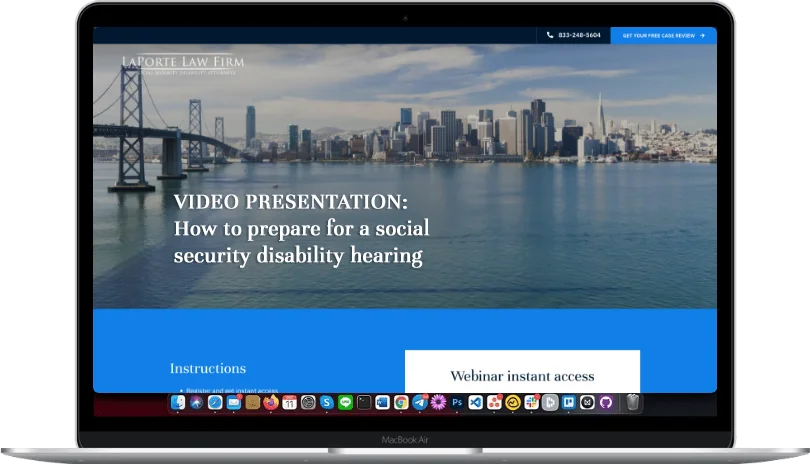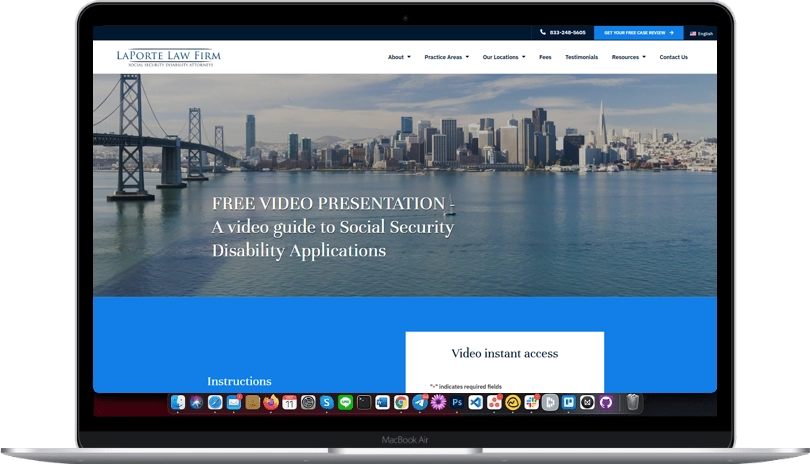
Navigating the world of Social Security disability benefits can feel daunting. Are you concerned about how your savings might impact your eligibility or monthly benefits? You are not alone in seeking clarity on this confusing subject. This article will discuss the different Social Security programs and the impact of savings on your eligibility.
Understanding Social Security Disability Programs
Before we dive into how savings and bank accounts affect your benefits, let’s clarify which disability program you’re dealing with, because the rules are very different depending on the program.
Distinctions between SSDI and SSI
There are two main federal disability programs:
- Social Security Disability Insurance (SSDI) is based on your work history. If you’ve worked and paid into Social Security through payroll taxes, you may qualify.
- Supplemental Security Income (SSI) is needs-based and has strict income and asset limits.
Think of SSDI like an insurance policy you earned by working. SSI, on the other hand, is designed to help people with very limited income and resources, regardless of their work history.
Take a look at these examples:
- John, who worked as a mechanic for 20 years, may qualify for SSDI even if he has $20,000 in savings.
- Jane, who hasn’t worked much and is applying for SSI, cannot have more than $2,000 in the bank.
Overview of eligibility criteria
The eligibility criteria for SSDI and SSI are as follows:
SSDI
- The applicant must have a qualifying disability expected to last at least a year or result in death The medical condition(s) must meet the Social Security Administration’s (SSA) strict definition of disability.
- SSDI eligibility requires sufficient work credits (typically, 5 out of the last 10 years).
SSI
- The applicant must meet the same medical disability definition as SSDI.
- They must meet strict financial limits (both income and assets).
- They must be a US citizen or meet specific residency requirements.
Title II vs. Title XVI benefits explained
This is the SSA’s shorthand: Title II = SSDI and Title XVI = SSI
Why does this matter? Title II benefits (SSDI) are “insured” by the taxes you’ve paid into Social Security. Title XVI, or SSI, on the other hand, is funded by general tax revenues and has stricter financial eligibility requirements.
How SSDI and SSI differ in terms of taxes and contributions (FICA)
SSDI is funded through FICA payroll taxes, whereas SSI is not funded through payroll taxes; instead, it is welfare-based.
Another key difference between these two types of disability benefits is that SSDI can be taxable if you have other income. Meanwhile, SSI is never taxable.
Financial Limits and Regulations
SSI has asset limits that determine whether you qualify for benefits. If you’re applying for or receiving SSI, you must stay under:
- $2,000 in countable resources (individual)
- $3,000 (couple)
Countable assets include:
- Bank accounts
- Stocks and bonds
- Extra vehicles
Exempt assets include:
- Your primary residence
- One vehicle
- Certain burial arrangements
If you go over the limit, even by a dollar, you can be ineligible for each month you go over the limit.
SSDI financial rules
Here’s the good news: SSDI has no asset limit. You can have $5,000 or $50,000 in the bank and still receive SSDI. But there is an income limit from work, called substantial gainful activity (SGA).
As of 2025, non-blind individuals could earn $1,620 a month, while non-blind disabled individuals could earn up to $2,700 a month and still qualify for SSDI benefits.
What about trial work periods? You can test your ability to work without immediately losing benefits, but you must report all work activity to the Social Security Administration to avoid any overpayments or loss of entitlement.
How savings accounts impact eligibility
If you’re applying for SSI, your savings count toward the $2,000 limit. Your savings, however, do not affect your eligibility for SSDI.
Tip: If you’re receiving SSI, consider opening an ABLE account to legally save more money.
401(k) and retirement accounts under SSDI and SSI
If you’re applying for Social Security disability benefits, you might be wondering how your 401(k) and retirement accounts may impact your eligibility. SSDI is not affected by these, so you can keep your 401(k), IRA, or pension savings and still receive SSDI benefits monthly. However, for SSI, these accounts may count as resources if you can access them.
Liquidating retirement accounts early can also trigger tax penalties and affect benefits. Always speak to an advisor first to understand their full impact on your eligibility for benefits and to avoid unintended financial consequences.
Managing Savings and Investments
Managing your savings and investments is crucial if you’re receiving Social Security disability benefits. To stay eligible, it’s important to understand which types of savings are allowed and how to structure them properly.
Allowable savings for SSI recipients
To keep your SSI, you must stay below the $2,000 limit. Consider using:
- ABLE accounts (up to $100,000 without affecting SSI)
- Prepaid burial funds or irrevocable trusts (if structured correctly)
Investments and SSDI
SSDI recipients can invest freely. Stocks, bonds, mutual funds, and even rental property are allowed.
Take note that capital gains and dividends may affect your taxes, but not SSDI eligibility. Always be sure to work with a financial professional who can help you navigate this process with confidence. Advisors bring expertise in portfolio diversification, risk management, tax efficiency, and more, all tailored to your unique financial situation.
Brokerage accounts: What you need to know
For SSI, brokerage accounts are counted toward the $2,000 limit. For SSDI, on the other hand, these accounts are fine. Remember, though, to report any income or distributions, and keep good records.
Reporting and Documentation
Staying compliant with the SSA program rules is just as important as qualifying in the first place. Whether you are receiving SSDI or SSI, keeping the SSA updated ensures you continue receiving the correct benefit amount and helps avoid overpayments that may need to be paid back later.
Communicating with the SSA
It’s important to communicate regularly with the SSA when you’re receiving SSI or SSDI to ensure your benefits remain accurate and uninterrupted. Reporting changes in income, living arrangements, or resources helps you stay in compliance and avoid overpayments or penalties.
Here are some things to keep in mind when communicating with the SSA and making sure your benefits stay on track:
- Report any changes promptly. This includes:
-
- Start or end of a job (even part-time or work paid in cash)
- Changes in income (earned or unearned)
- Changes in living situation (moving, marriage, new household members)
- Changes in assets (especially for SSI)
- Medical updates (new diagnoses, hospitalizations, functional changes)
- Use the right channels. You may contact the SSA online, by phone, or in person.
-
- Online: MySSA.gov is a secure way to report changes, view your benefits, and download forms.
- By phone: You can also call your local SSA office or the national line at 1-800-772-1213.
- In person: Consider making an appointment at your nearest SSA field office if your issue is complex. You can find out which office to go to by checking the SSA’s office locator by zip code.
- Document everything. Keep copies of all communications with the SSA, including letters, receipts, and medical updates.
-
- If you report something by phone, ask for a confirmation letter.
- Save pay stubs, bank statements, and other relevant financial documents for at least 2–3 years.
Income from work and other sources
Both SSI and SSI recipients are required to report these types of of income:
- Earned: Wages, self-employment income
- Unearned: Alimony, unemployment, pensions
Exploring work incentive programs is important because they provide structured support for SSI or SSDI recipients who want to return to work without immediately risking their benefits. These programs help protect your healthcare coverage and income while you transition back into the workforce.
Look into work incentive programs such as:
- Ticket to Work (for SSDI beneficiaries)
- PASS (Plan to Achieve Self-Support) (for SSI recipients)
Exploring additional benefits
Many states offer extra help for SSI and SSDI recipients, including additional cash assistance, Medicaid benefits, and programs that help with housing, transportation, and employment support. For instance, California residents can avail the following benefits:
- Medicaid or Medi-Cal
- SNAP (formerly known as food stamps)
- Utility discounts or rent subsidies, such as the CARE/FERA program or Section 8 Housing
When your income or assets change, always revisit these programs.
Seeking Professional Guidance
A Social Security attorney or legal representative can guide you through the application or appeals process and help you avoid mistakes that could cost you benefits. They work on contingency — that is, you don’t need to pay them unless your claim for benefits is approved. This makes legal support accessible even if you’re struggling financially, giving you a better chance at securing the benefits you need.
And if you are already receiving Social Security disability and are worried about what is “too much” in the bank, your attorney can help clarify how your financial resources may affect your eligibility and advise you on staying compliant. For SSDI, focus on your income, not your assets. For SSI, be mindful of every dollar in your account.
If you need help navigating, applying, or appealing your claim, contact LaPorte Law Firm for a free consultation. We have helped thousands of clients secure their benefits and avoid delays, denials, and costly mistakes.
FAQS
For SSI, the asset limit is $2,000, while there is no limit for SSDI.
For SSI, it can disqualify you if you are over the limit. But for SSDI, it has no impact.
Yes, your home, one car, and ABLE accounts are generally exempt under SSI. There is no asset limit for SSDI.
You could lose your benefits if your countable resources exceed $2,000 for even one day.
Use ABLE accounts, keep good records, and consult professionals when needed.
















